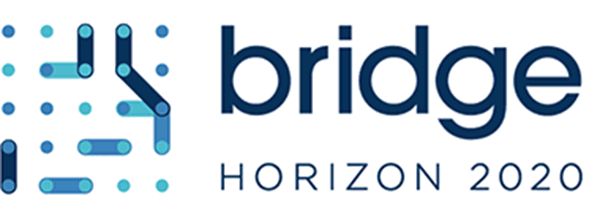Phoenix Cookie Policy
Introduction
Electrical Power System’s Shield against complex incidents and extensive cyber and privacy attacks (hereinafter “Project”, “Phoenix”, or “Consortium”), is committed to ensure the security and privacy of your Personal Data. As a Controller, the Consortium takes its responsibility regarding the security and privacy of Personal Data very seriously and is going to be transparent about the type of data it collects and how it is being handled.
The purpose of the present Cookies Policy (hereinafter the “Cookies Policy”) is to explain which kind of cookies are implemented on the Phoenix web site (https://phoenix-h2020.eu/), and how the user may disable or remove the same cookies.
Any term indicated in capital letter shall have the meaning attributed to it within the EU Regulation 679/2016 (hereinafter the “GDPR”) or otherwise provided hereto.
Data Controller
The Data Controller will be the Consortium.
Definition of Cookies
The web pages of the Consortium use cookies. Cookies are text files that are stored in a computer system via an Internet browser. Many Internet sites and servers use cookies. Many cookies contain a so-called cookie ID. A cookie ID is a unique identifier of the cookie. It consists of a character string through which Internet pages and servers can be assigned to the specific Internet browser in which the cookie was stored. This allows visited Internet sites and servers to differentiate the individual browser of the Data Subject from other Internet browsers which contain other cookies. A specific Internet browser can be recognized and identified using the unique cookie ID.
Cookies can be “session” or “persistent” cookies. A session cookie is a cookie that is automatically deleted when the user closes the browser, whereas a persistent cookie is a cookie that remains stored in the user’s terminal device until it reaches a defined expiration date.
Cookies implemented by the Consortium
Through the use of cookies, the Consortium can provide the users of this website with more user-friendly services that would not be possible without the cookie setting. By means of a cookie, the information on our website can be optimized with the user in mind. Cookies allow us, as previously mentioned, to recognize our website users. The purpose of this recognition is to make it easier for users to utilize our website. The website user who uses cookies, e.g., does not have to enter access data each time the website is accessed, because this is taken over by the website, and the cookie is thus stored on the user’s computer system.
In particular, the Consortium on its website uses:
- “necessary cookies”, either persistent and session cookies. Necessary cookies help make a website usable by enabling basic functions like page navigation and access to secure areas of the website. The website cannot function properly without these cookies.
- “marketing cookies”, which are only sessions cookies. Marketing cookies are used to track visitors across websites. The intention is to display ads that are relevant and engaging for the individual user and thereby more valuable for publishers and third party advertisers.
Specific provisions on Google Analytics
On this website, the controller has integrated the component of Google Analytics (with the anonymizer function). For further information please consult the following URL: https://phoenix-h2020.eu/privacy-policy.
Google Analytics places a cookie on the information technology system of the Data Subject. Cookies are text files that are stored in a computer system via an Internet browser. Many Internet sites and servers use cookies. Many cookies contain a so-called cookie ID. A cookie ID is a unique identifier of the cookie. It consists of a character string through which Internet pages and servers can be assigned to the specific Internet browser in which the cookie was stored. This allows visited Internet sites and servers to differentiate the individual browser of the Data Subject from other Internet browsers which contain other cookies. A specific Internet browser can be recognized and identified using the unique cookie ID. With the setting of the cookie, Google is enabled to analyze the use of our website. With each call-up to one of the individual pages of this Internet site, which is operated by the controller and into which a Google Analytics component was integrated, the Internet browser on the information technology system of the Data Subject will automatically submit data through the Google Analytics component for the purpose of online advertising and the settlement of commissions to Google. During the course of this technical procedure, the project consortium Google gains knowledge of personal information, such as the IP address of the Data Subject, which serves Google, inter alia, to understand the origin of visitors and clicks, and subsequently create commission settlements.
The cookie is used to store personal information, such as the access time, the location from which the access was made, and the frequency of visits of our website by the Data Subject. With each visit to our Internet site, such Personal Data, including the IP address of the Internet access used by the Data Subject, will be transmitted to Google in the United States of America. These Personal Data are stored by Google in the United States of America. Google may pass these Personal Data collected through the technical procedure to third parties.
The Data Subject may, as stated above, prevent the setting of cookies through our website at any time by means of a corresponding adjustment of the web browser used and thus permanently deny the setting of cookies. Such an adjustment to the Internet browser used would also prevent Google Analytics from setting a cookie on the information technology system of the Data Subject. In addition, cookies already in use by Google Analytics may be deleted at any time via a web browser or other software programs.
In addition, the Data Subject has the possibility of objecting to a collection of data that are generated by Google Analytics, which is related to the use of this website, as well as the processing of this data by Google and the chance to preclude any such. For this purpose, the Data Subject must download a browser add-on under the link https://tools.google.com/dlpage/gaoptout and install it. This browser add-on tells Google Analytics through a JavaScript, that any data and information about the visits of Internet pages may not be transmitted to Google Analytics. The installation of the browser add-ons is considered an objection by Google. If the information technology system of the Data Subject is later deleted, formatted, or newly installed, then the Data Subject must reinstall the browser add-ons to disable Google Analytics. If the browser add-on was uninstalled by the Data Subject or any other person who is attributable to their sphere of competence, or is disabled, it is possible to execute the reinstallation or reactivation of the browser add-ons.
How to disable or remove the cookies
The Data Subject may, at any time, prevent the setting of cookies through our website by means of a corresponding setting of the Internet browser used, and may thus permanently deny the setting of cookies. Furthermore, already set cookies may be deleted at any time via an Internet browser or other software programs. This is possible in all popular Internet browsers. If the Data Subject deactivates the setting of cookies in the Internet browser used, not all functions of our website may be entirely usable.
Please consult the following link if you need further clarification on how to disable the cookies: https://www.aboutcookies.org
Contact information
If you would like to receive further information on the use of the cookies, or if you have comments, questions or concerns, or if you would like to submit a complaint regarding the collection and use of your Personal Data, please feel free to contact the following email address: ghasan.bhatti@capgemini.com.
Changes
Where appropriate, we will notify you of any changes to this Cookies Policy, for example by email or push notification.
Entry into force
The present Cookies Policy entered into force the 1st November 2019.
Last update 21/11/2019.
Latest PHOENIX Tweets
![]() This project has received funding from the European Union’s Horizon 2020 research and Innovation programme under grant agreement N°832989. All information on this website reflects only the authors' view. The Agency and the Commission are not responsible for any use that may be made of the information this website contains.
This project has received funding from the European Union’s Horizon 2020 research and Innovation programme under grant agreement N°832989. All information on this website reflects only the authors' view. The Agency and the Commission are not responsible for any use that may be made of the information this website contains.
Related projects
Privacy Overview
Necessary cookies are absolutely essential for the website to function properly. This category only includes cookies that ensures basic functionalities and security features of the website. These cookies do not store any personal information.
| Cookie | Type | Duration | Description |
|---|---|---|---|
| __cfduid | 1 | 1 month | The cookie is set by CloudFare. It is used to identify individual clients behind a shared IP address and apply security settings on a per-client basis. It does not correspond to any user ID in the web application and does not store any personally identifiable information. |
| _wpfuuid | 0 | 10 years | Contact form UUID (Universally Unique Identifier) cookie. It allows the plugin to connect entries by the same user and does not contain or represent any personal information or entry details. |
| cookielawinfo-checkbox-necessary | 0 | 11 months | This cookie is set by GDPR Cookie Consent plugin. The cookies is used to store the user consent for the cookies in the category "Necessary". |
| cookielawinfo-checkbox-non-necessary | 0 | 11 months | This cookie is set by GDPR Cookie Consent plugin. The cookies is used to store the user consent for the cookies in the category "Non Necessary". |
| test_cookie | 0 | 11 months | |
| viewed_cookie_policy | 0 | 11 months | The cookie is set by the GDPR Cookie Consent plugin and is used to store whether or not user has consented to the use of cookies. It does not store any personal data. |
These cookies are used to calculate visitor, session, campaign data and keep track of site usage for the site’s analytics report. The cookies store information anonymously and assigns a randomly generated number to identify unique visitors.
| Cookie | Type | Duration | Description |
|---|---|---|---|
| _ga | 0 | 2 years | This cookie is installed by Google Analytics. It is used to calculate visitor, session, campaign data and keep track of site usage for the site's analytics report. The cookies store information anonymously and assigns a randomly generated number to identify unique visitors. |
| _gat_gtag_UA_152331303_1 | 0 | 1 minute | Google uses this cookie to distinguish users. |
| _gid | 0 | 1 day | This cookie is installed by Google Analytics. It is used to store information of how visitors use a website and helps in creating an analytics report of how the website is doing. The data collected including the number visitors, the source where they have come from, and the pages visited in an anonymous form. |












